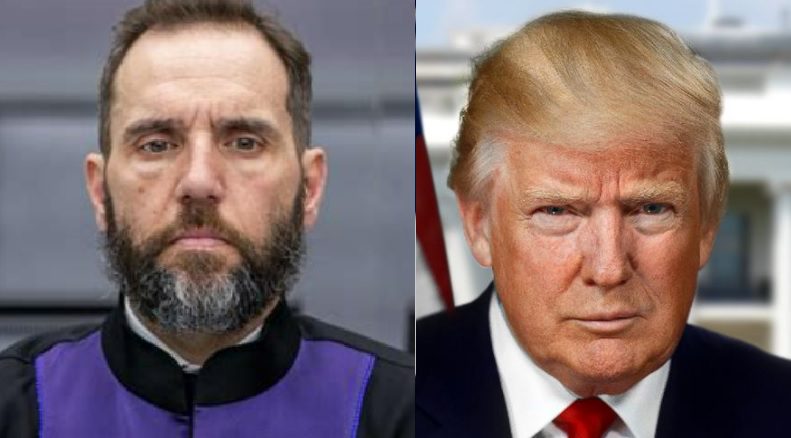In recent developments concerning former President Donald Trump, Special Counsel Jack Smith has made bold allegations linking Trump directly to the events of January 6, 2021. With the date for the upcoming Election Day just around the corner, Smith’s filing asserts that Trump “willfully caused his supporters to obstruct and attempt to obstruct” the certification of the 2020 presidential election results. Despite Trump’s public statement urging his supporters to “protest peacefully and patriotically,” Smith’s prosecutors argue that the former president bears responsibility for the violence and chaos that ensued at the U.S. Capitol. This response comes in light of Trump’s own motion to dismiss the superseding indictment on statutory grounds, which Smith’s team is vigorously contesting.
Jack Smith’s investigation into Trump’s actions has taken a significant turn, as he indicted Trump once again in August 2023 following a Supreme Court ruling that clarified issues of presidential immunity. The charges brought against Trump mirror those unveiled during the initial indictment—namely, conspiracy to defraud the United States, conspiracy to obstruct an official proceeding, obstruction of an official proceeding, and conspiracy against rights. The 36-page indictment emphasizes that the actions Trump undertook were deemed private rather than official, with Smith’s team stating that the rally on January 6 was “privately funded and privately organized,” thereby complicating Trump’s defense.
In his recent court filings, Smith asserted that Trump not only summoned his supporters to Washington but also gave them “false hope” regarding the ability of then-Vice President Mike Pence to overturn the election results. Smith’s team claims that these actions directly linked Trump to the attempted obstruction of the electoral certification process. They articulated a clear indictment that Trump “willfully caused” his supporters to pressure congressional legislators into rejecting legitimate electoral certificates while endorsing fraudulent alternatives. The prosecutors’ narrative paints a picture of calculated incitement rather than mere encouragement to peacefully assemble, further complicating Trump’s legal arguments.
Amid these legal challenges, Trump’s defense team argues that he is immune from federal prosecution for conduct allegedly committed during his presidency. This declaration of presidential immunity is a central thrust of their legal strategy, and Judge Tanya Chutkan has mandated that Trump’s lawyers submit a motion to dismiss the indictment based on these claims by a specified deadline. Following that, Smith will have a subsequent period to respond to the defense’s arguments, reflecting the ongoing legal battle between the former president and federal authorities.
In the wake of these developments, the political implications are significant, with the indictment overshadowing Trump’s campaign and raising questions about the upcoming election’s fairness and integrity. While Trump has consistently maintained his innocence, the serious nature of the allegations and the mounting legal pressures could shape public perception and influence voter sentiment. As the indictment process unfolds in an election year, the judicial system’s handling of these cases will undoubtedly attract immense scrutiny from both political allies and adversaries.
As Jack Smith continues to build his case against Trump, the former president faces not only legal peril but also the potential alienation of his base amidst the electoral campaign. The interplay between the judiciary and the electoral process sets a tumultuous stage for the months leading up to the next presidential election. The developments in the case could serve as a pivotal moment in U.S. political and judicial history, with consequences that extend beyond Trump and potentially affect the broader political landscape. The unfolding events reflect a complex intersection of law, politics, and public sentiment, further deepening the narrative of division and discord in contemporary American society.

